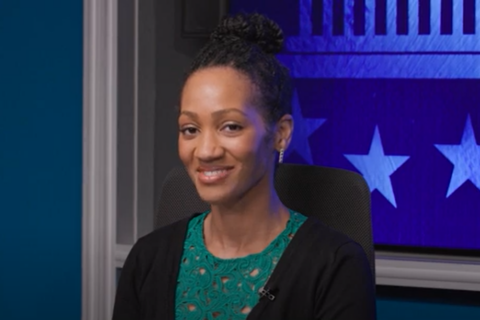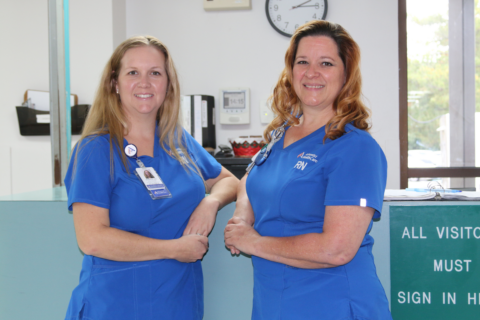This content is sponsored by Adventist HealthCare Fort Washington Medical Center.
Specialists at Adventist HealthCare Fort Washington Medical Center are raising awareness of the significant impact diabetes can have on residents and communities as part of an ongoing effort to bring more resources and treatment options to southwestern Prince George’s County.
“The prevalence of diabetes has gone up over the past few decades,” said Dr. Eleisha Flanagan, a bariatric surgeon and one of the newest members of the Fort Washington hospital’s team.
November is National Diabetes Month, a time when communities across the country team up to help draw attention to the illness.
It affects about 37 million Americans and occurs when blood glucose, also called blood sugar, is too high.
Diabetes can damage the eyes, kidneys, nerves and heart, and it’s linked to certain types of cancer.
“It has become more widespread due to a number of socioeconomic and lifestyle factors, including a lack of access to healthy food and a lack of safe options or resources for physical activity,” Flanagan said. “When we have communities that end up with those factors, then diabetes tends to follow.”
Diabetes afflicts 13.8% of residents in Prince George’s County.
About 35% of adults in Prince George’s County suffer from obesity, which is higher than the overall average of 32.2% in Maryland and 31.9% across the United States.
Type 2 diabetes, in particular, occurs most often in middle-aged and older people, and being overweight is one of the major risk factors.
Diabetes and surgery

As a surgeon, Flanagan is sensitive to the effects diabetes can have on a hospital patient.
The illness can make it more difficult for wounds to heal and can cause an electrolyte imbalance, leading to kidney problems.
“Uncontrolled diabetes has an increased risk of complications for patients who are undergoing surgery,” said Flanagan. “It can change the outcome of the surgery itself.”
However, gastric bypass and other weight-loss bariatric surgeries may be the best option for someone who is suffering from diabetes.
“We have a robust bariatric surgery team here at Adventist HealthCare Fort Washington Medical Center,” said Flanagan.
The team works with a bariatric nurse practitioner and provides patients with access to a nutritionist, a psychologist and an exercise specialist.
“We work closely with your primary care physician,” Flanagan said. “If an endocrinologist or another type of specialist is needed, we bring them on as well.”
According to Flanagan, bariatric surgery is “hands down the most effective treatment for type 2 diabetes.”
The metabolic effect of weight loss that results from surgery can often cause a patient’s diabetes to go into remission entirely.
When that happens, the patient is able to stop taking all or most of their medications.
Coming back home
Flanagan was hired at Adventist HealthCare Fort Washington Medical Center as part of the hospital’s overarching goal of bringing in new, talented specialists who can serve a region in which residents too often face a lack of health care options.
Hospital leaders have outlined a plan for the future that includes a larger hospital with a strong provider network and a long list of specialty services.
A 93,000 square foot medical pavilion is near completion in Oxon Hill at National Harbor and is set to receive patients in2023. The pavilion will include outpatient surgical services including orthopedic, ophthalmic, cardiovascular, general surgery, and more, in addition to a full range of diagnostic imaging services using state-of-the-art equipment for faster and more detailed testing.
It’s all in the name of reducing disparities and helping people find care close to home so they don’t need to travel to places such as other Maryland counties, Virginia or D.C. in search of medical options.
“Traveling 30 minutes or more to see a doctor really prevents patients from seeking care or following up with their care,” Flanagan said. “I’m elated that a hospital system with great resources is dedicated to really serving the community.”
Another thing Flanagan said she’s “ecstatic” about is returning to the place she calls home.
Flanagan is originally from the Fort Washington area in Maryland.
Her medical training took her away from the region for a while, but now she’s back and is able to pursue her passion.
“It means a lot to me to be able to serve and take care of the community where I grew up,” Flanagan said. “It is truly an honor and a pleasure to be here and practice here.”







